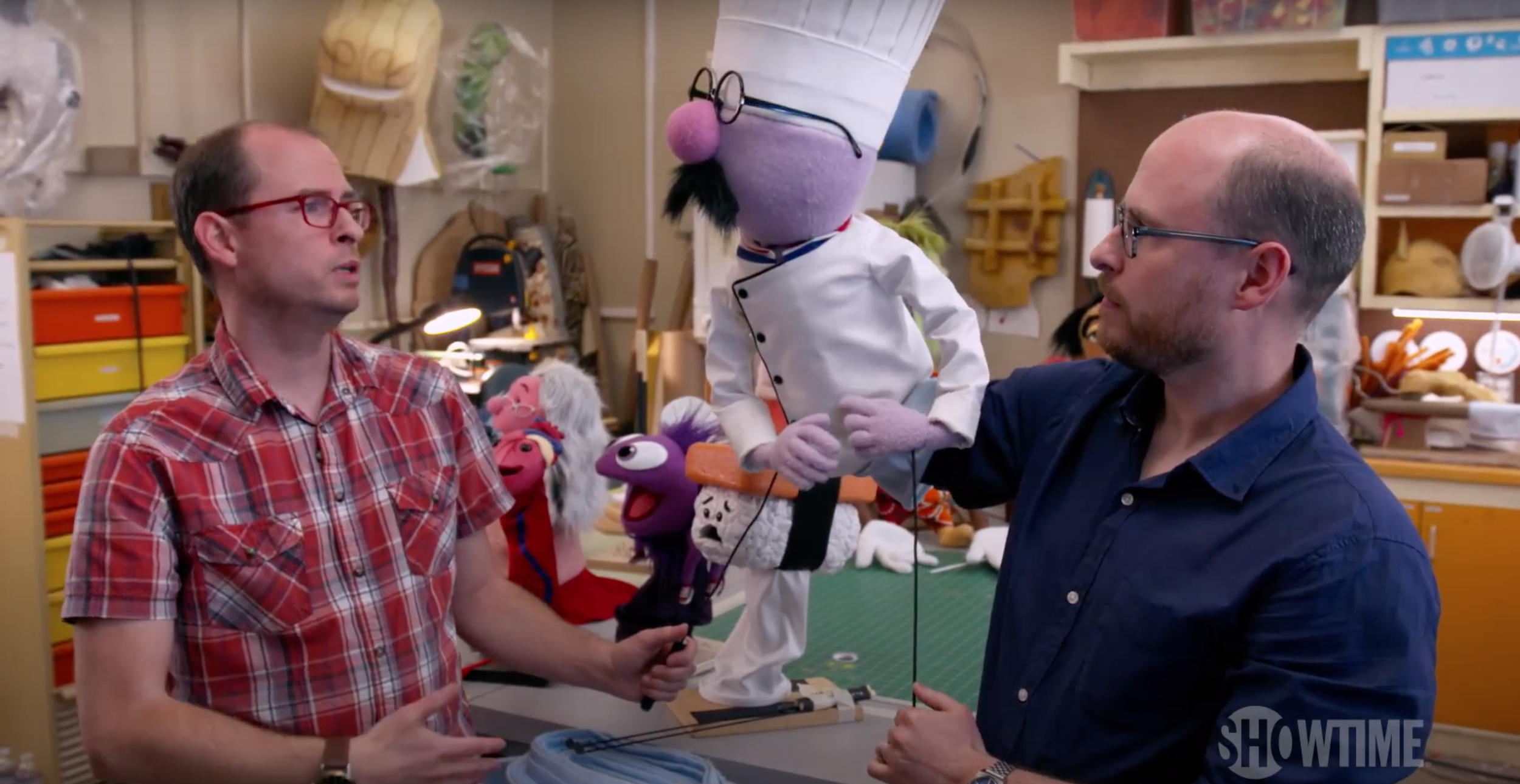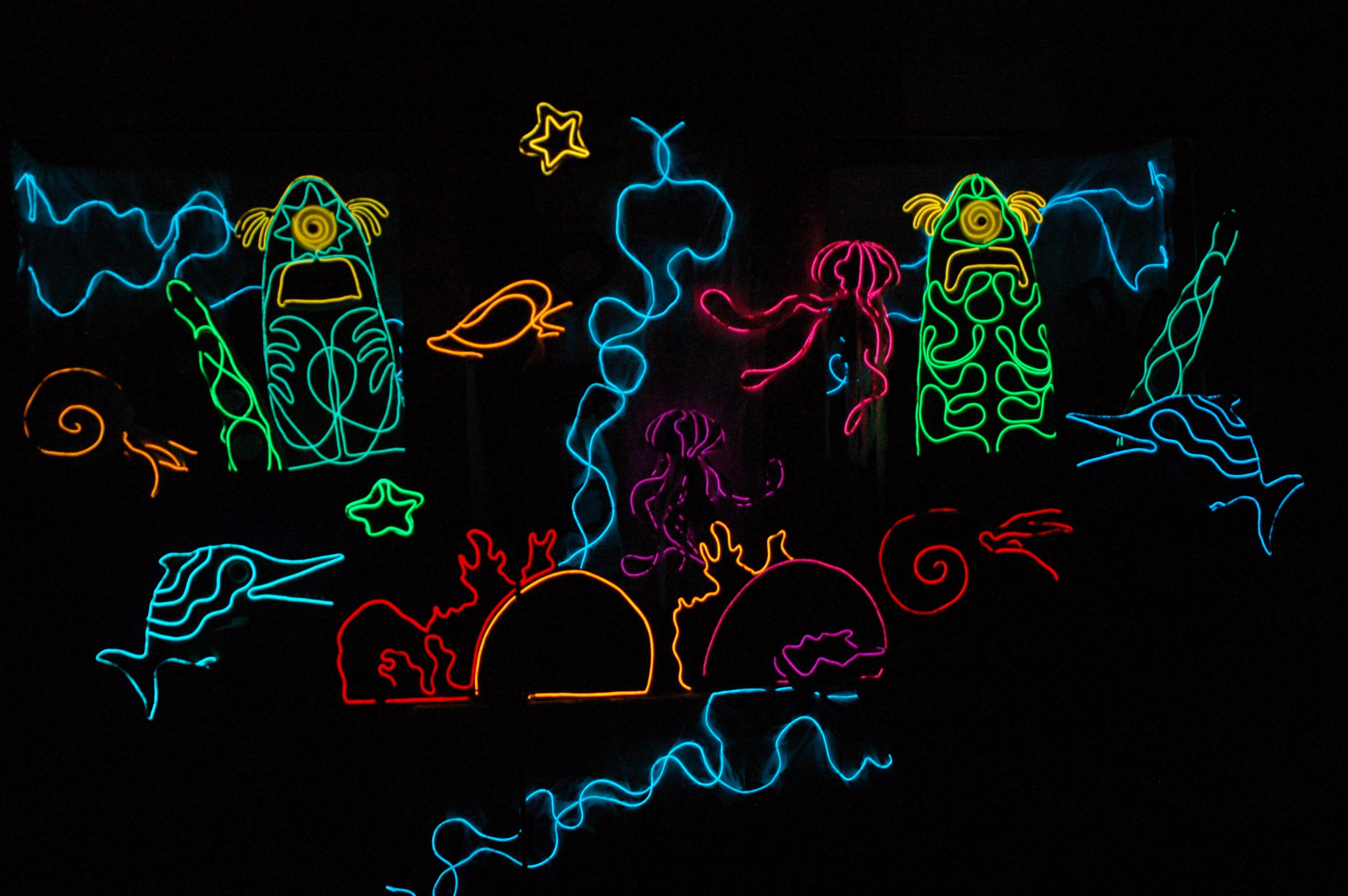A question we get asked a lot here at Swazzle is, “How do I become a puppeteer?” The puppetry industry is diverse and varied, and a career in puppetry can range from performing shows at your local library to performing on big-budget film productions. The way into this industry can seem opaque until you understand that puppetry occupies a small niche in the overall entertainment industry.
Puppeteers are a close-knit group, and while skills are important, opportunities also tend to be relationship based. With that understanding, here are five steps you can take to begin to make your way into that community, develop your skills, and jump-start your puppetry career.
Step 1: Join the Puppeteers of America and your local puppeteers guild.
First, it’s important to understand that puppeteers are a small group, and, like the citizens of a small town, they all seem to know each other. The good news is that puppeteers tend to be a friendly bunch willing to share their knowledge and meet new people who share their passion.
An easy way to begin meeting puppeteers and forming those meaningful relationships is to join the Puppeteers of America and your local puppeteers guild. When we first started out as puppeteers, we joined The San Francisco Bay Area Puppeteers Guild. There we met working professionals whose advice, instruction and encouragement were instrumental in building the foundation of our professional puppetry careers.
Step 2: Attend a puppetry festival.
Not only will attending a regional, national or international puppetry festival introduce you to even more working puppeteers, it is also a great way to see professional puppet performance and be exposed to a variety of puppetry styles. Additionally, festivals offer workshops where attendees can learn a wide variety of puppet building and performance techniques.
We participated in a puppet foam-construction workshop at the first puppetry festival we attended, back in 1993. It was there that we learned many of the puppet building skills we still use today.
Step 3: Talk to performers after puppet shows.
Seek out puppet shows and performances happening in your area and talk with the puppeteers after the show. Not only is this a great way to make a personal connection, it’s also a great way to pick up a few professional tips and tricks. No matter the size of the production, we have always found that working puppeteers are generous with their time and more than willing to take you backstage and answer any questions you may have.
Before we attended our first puppeteers guild meeting, we attended a puppet show at our local library. When we approached the puppeteer after the show, he graciously showed us how things worked and invited us to attend our first puppet guild meeting. That one conversation started us on our puppetry journey.
Step 4: Develop your own work.
One of the nice things about puppetry is that most shows tend to be smaller in scale, making it possible to write, build and perform your own puppet shows. Doing your own work builds skills and gives you the ability to earn money! Even if it’s your dream to be a big-time puppeteer in film and television, it’s helpful to have a catalog of your own shows that can be performed between larger gigs.
After moving to Los Angeles to get into film and television, we continued to fill our summers, weekends and holidays with library puppet shows. These shows kept us from having to take outside jobs while we worked on landing the next high-profile production.
Step 5: Sharpen your skills.
At the beginning, your puppet-building and performance skills might not be up to professional standards. But people starting out today are lucky because there are so many puppet-building and puppet performance tutorials available. Absorb as much information as possible, and build your skills by making puppets and performing them anywhere you can.
When we were first starting out, we made our own puppets and performed shows for free everywhere: our high school drama class, family reunions, friends’ birthday parties and at the local day camp. These free shows gave us the opportunity to develop both our building and performance skills.
Of course, no one can guarantee success. But these five steps are the ones we followed when starting our professional puppetry careers. Good luck!




